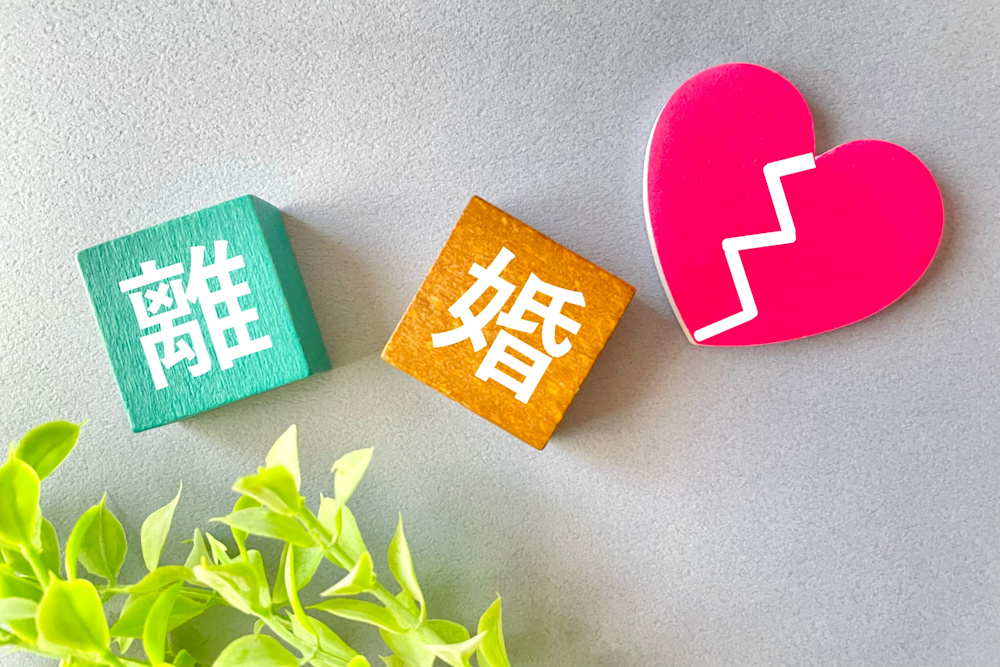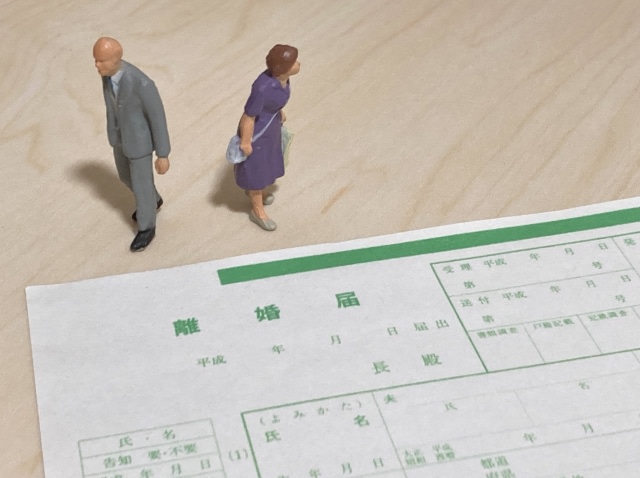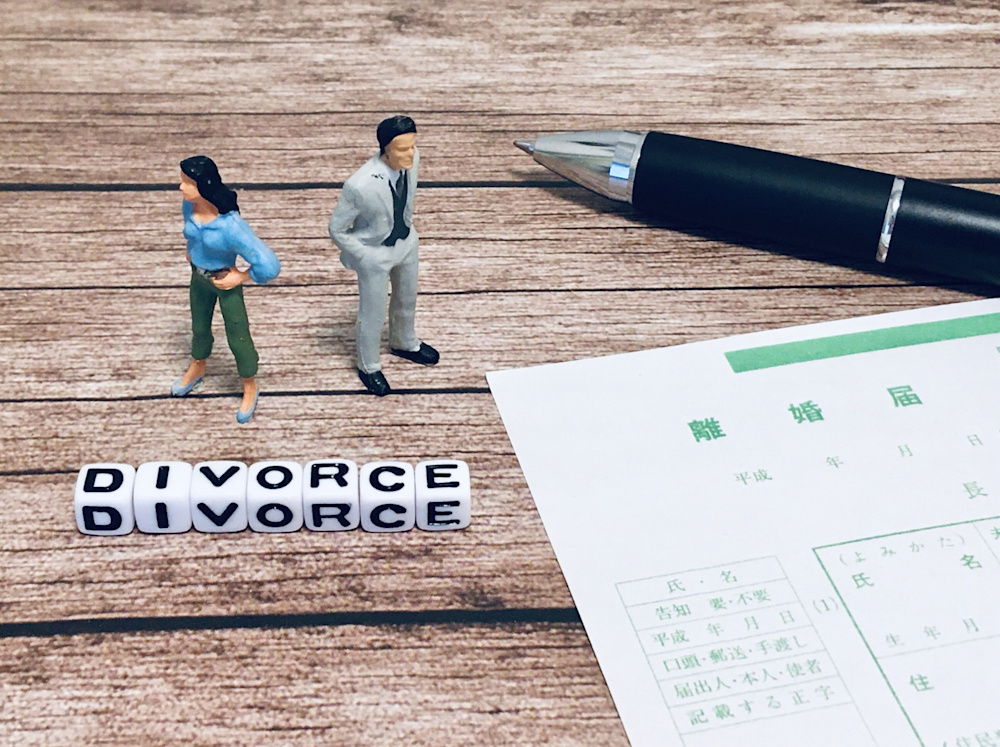Updated October 21, 2025
Divorce in Japan for Foreigners: Everything You Need to Know [Oct 2025]
Divorce is never simple, but doing it in Japan as a foreigner comes with its own set of complexities. After all, you're dealing with unfamiliar laws, cultural differences, and visa issues that can affect your entire future.
Whether you're married to a Japanese national or fellow expat, this guide will walk you through the process step by step. We'll cover the different divorce procedures, what to expect timeline-wise, and the visa considerations that could determine whether you can stay in Japan.
Let's start with some context about divorce in Japanese culture.
In this article: 📝
Understanding Divorce Rates in Japan vs. America and Other Countries
Japan registered 1.52 divorces per 1,000 inhabitants in 2023, marking a slight increase after three consecutive years of decline.
This places Japan among countries with relatively moderate divorce rates globally.
To put this into perspective, the United States had approximately 2.8 divorces per 1,000 people in 2022, nearly double Japan's rate.
This very low divorce rate of 1.52 reflects Japanese cultural attitudes toward marriage and divorce, which differ considerably from Western countries.
Most divorces happen within the first 10 years of marriage, with the peak occurring in marriages under 5 years. In 2023, around 52,783 couples split within their first five years, while 34,604 ended marriages between 5 and 10 years.
These numbers show that shorter marriages face higher risks, often due to cultural or personal adjustments.
International Marriages Face Even Higher Challenges
The relatively lower divorce rate in Japan isn’t a coincidence. It has a lot to do with Japanese culture, which is apparent by the fact that foreigners living in Japan have a much higher divorce rate.
According to the Ministry of Health, Labor and Welfare, more than half of international marriages in Japan end in divorce, significantly higher than the general population.
Marriages between Japanese men and Chinese or Korean women see divorce rates exceeding 57%, while marriages between Japanese men and Filipino women have divorce rates as high as 68%. These statistics bring to light the additional cultural and communication barriers that foreign couples often face.
The Four Types of Divorce Process in Japan
Understanding how to divorce in Japan starts with knowing your options.
The Japanese legal system recognizes four distinct divorce processes in Japan, each designed for different circumstances and levels of agreement between spouses.
Divorce by Agreement (協議離婚, Kyogi Rikon)
Let’s start with the most amicable method.
Divorce by agreement, called 協議離婚 (Kyogi Rikon) in Japanese, represents over 90% of all divorces in Japan, making it the most common path for couples who can reach mutual understanding. This non-judicial approach means you never set foot in a courtroom, which is a significant advantage in terms of time, cost, and emotional stress.
The process involves both spouses filling out a divorce notification form (離婚届, rikon todoke) and submitting it to their local municipal office. Both parties must sign and seal the document, and two witnesses over the age of 20 must also co-sign.
The best thing about this method is that the spouses don't need to be physically present at the ward office during submission, as long as all paperwork is properly completed and signed beforehand.
However, this apparent simplicity can create some risks for foreign spouses. Cases of forged signatures or manipulation have been reported, where one spouse tricks the other into signing divorce papers or forges their signature entirely.
To protect yourself against this, simply file a "Petition for Non-Acceptance of Notice of Divorce" (離婚届不受理申出) at the municipal office. This is a safe workaround to avoid any divorce registrations without your explicit consent.

Divorce by Conciliation (調停離婚, Chotei Rikon)
When couples cannot reach an agreement through amicable discussion, divorce by conciliation (調停離婚, Chotei Rikon) becomes the next step. This process requires applying to the family court and is mandatory before pursuing divorce through litigation.
During conciliation, a judge and a two-person committee (one male, one female conciliator) mediate between the spouses.
The great thing about this system is that you typically don't need to face your spouse directly. The mediators go back and forth between separate rooms, facilitating discussions on important aspects of the divorce such as asset division, child custody, and support arrangements.
If conciliation succeeds, the court creates a legally binding written record with the same enforceability as a court judgment. However, if it fails, the court may either dismiss the case or, rarely, issue a decision on minor matters if both parties agree on the big ones.
Divorce by Family Court Decision (審判離婚, Shinpan Rikon)
Divorce by family court decision occurs in rare circumstances when couples agree on divorce but cannot resolve minor financial details.
Think of it as the court stepping in to make the final call on relatively small disagreements, like who pays for the kids' school fees or how to split a small savings account.
The court’s decision is final unless one spouse objects within two weeks, which can push the case to litigation.
This process is rarely used, representing less than 1% of all divorces in Japan. Most couples either work things out through agreement or need the full conciliation process to resolve their differences. It's essentially a legal shortcut that only works when the stars align perfectly.
Divorce by Judgment (裁判離婚, Saiban Rikon)
Divorce by judgment (裁判離婚, Saiban Rikon) requires filing a lawsuit in district court after unsuccessful conciliation.
This litigation-based approach demands certain legal grounds to exist, which are detailed under Article 770 of the Civil Code as:
Infidelity by a spouse
Malicious abandonment
Uncertainty about spouse's survival (missing for 3+ years)
Severe mental illness with no recovery prospects
Other grave circumstances that make marriage continuation impossible
This process requires substantial evidence and can take months or years to resolve. Given the complexity, hiring an experienced family law attorney becomes essential here.
Special Considerations for Foreign Couples
Divorce in Japan for both foreigners (where neither spouse is Japanese) requires some additional steps.
First, you must demonstrate that divorce is legally permissible in your home countries and that Japanese procedures align with your national laws.
According to the U.S. Embassy, American citizens can divorce in Japan, but should verify that their divorce will be recognized in their home state, as the United States has no procedure for extra-judicial divorce. Similar considerations apply to other nationalities, so check with your embassy to confirm if your Japanese divorce will be recognized back home.
In addition to these rules, the Japanese court system also requires at least one party to be a legal resident of Japan. This is to prevent "divorce tourism," where couples travel to Japan solely for divorce proceedings.
Where and How to Get Divorce Papers
If you’re wondering how to get divorce papers in Japan, the answer depends on your divorce type.
For divorce by agreement, you can obtain the rikon todoke form free of charge from any municipal office (city hall, ward office, or town office). The form is available in Japanese, so you may need translation assistance.
For court-based divorces, application forms are available at family courts. The Supreme Court of Japan maintains a complete directory of family courts nationwide. Major family courts include Tokyo, Osaka, Nagoya, and regional branches throughout the country.
Required documents for divorce typically include:
Marriage certificate copy
Certificate of residence (juminhyo)
Copies of identification documents
Revenue stamps (fees vary by court)
Translated documents if originally in foreign languages
The Timeline: How Long Does Divorce Take in Japan?
The answer to the question “How long does it take to divorce in Japan?” varies dramatically by the method you follow:
Divorce by Agreement: Can be completed same-day if paperwork is properly prepared.
Divorce by Conciliation: Usually takes 3-6 months, depending on complexity and court schedules.
Divorce by Court Decision: Rare, but typically resolved within the conciliation timeframe.
Divorce by Judgment: Can extend 6 months to several years, depending on contested issues and evidence requirements.
The key factor determining the timeline is the level of agreement between spouses. Complex asset division, child custody disputes, or uncooperative parties can significantly extend the process.

Child Custody: Major Changes Coming in 2026
Child custody represents one of the most challenging aspects of divorce in Japan. Currently, Japan still operates under a sole custody system that hasn't changed for roughly 80 years.
Unlike many Western countries that favor joint custody arrangements, Japanese law requires awarding full custody to one parent. This can be vastly different than where you’re from, but don’t worry because major changes are coming.
In 2024, the Japanese government passed a revised legislation allowing joint child custody for divorced parents. This groundbreaking change will take effect sometime in 2026, potentially transforming how international couples approach custody arrangements.
Until these changes take effect, it’s important to note that custody is typically awarded to the mother in Japan, unless compelling reasons exist to award custody to the father. The child's nationality doesn't factor into custody decisions, but the custodial parent's ability to provide care and stability sure does.
A heads-up for foreign parents: Japan doesn’t automatically honor custody orders from other countries. If you have custody rights back home, you’ll need to ask Japanese courts to enforce them, which can take time and may not work out.
Visa and Immigration Implications
What happens to your Japanese visa after divorce depends entirely on your current status of residence. This aspect of divorce in Japan often causes the most anxiety for foreign residents.
Spouse Visa Holders
If you hold a "Spouse of Japanese National" or "Spouse of Permanent Resident" visa, you must report your divorce to the nearest immigration office within 14 days. This requirement is absolute, and failure to report can result in visa violations.
After reporting, you have a six-month grace period to either leave Japan or change your visa status. To remain in Japan, you have the following options:
Long-term Resident Visa: Available if you've lived in Japan for 3-5 years or have Japanese children requiring your care.
Work Visa: If employed, your company may sponsor an appropriate work visa.
Other Family Visas: If you have other family relationships in Japan, you may be eligible for a family visa.
The key is acting quickly and consulting with immigration professionals. Our guide to immigration lawyers in Japan can provide crucial guidance during this transition period.
Work Visa Holders
If you're already on a work visa, divorce doesn't directly affect your status of residence.
However, you should still report major life changes to immigration authorities and inform your employer of any relevant circumstances.
Special Circumstances
Beyond the situations above, victims of domestic violence may qualify for special considerations, including extensions beyond the standard six-month period.
Immigration authorities handle these cases with additional sensitivity and may provide alternative pathways to legal residency. So, don’t be afraid to take this route if you’re feeling unsafe in your marriage.
Understanding common visa issues in Japan and how the process for change of status of residence works becomes vital during divorce proceedings, as these decisions affect your long-term ability to remain in the country. So, be sure to check our guides to learn more.

Practical Tips for Foreign Residents
Getting divorced in Japan as a foreigner requires careful preparation plus understanding some cultural differences. Here are practical tips to help keep the process smooth:
Document Everything: Keep detailed records of all agreements, court proceedings, and financial arrangements. Japanese bureaucracy requires extensive documentation, and having complete records prevents future complications.
Language Support: Consider hiring translators for court proceedings and legal document preparation. While some family court staff speak English, complex legal matters require precise communication.
Cultural Mediation: Japanese divorce proceedings emphasize harmony and mutual agreement. Aggressive Western-style litigation tactics can backfire, potentially prolonging proceedings and even damaging your position.
Financial Planning: Divorce costs vary widely, from minimal fees for agreement-based divorce to substantial legal costs for contested litigation. Budget accordingly and understand that complex cases may require ongoing legal representation.
Child Considerations: If you have children, start planning early for custody, visitation, and support arrangements. The upcoming joint custody changes may affect your strategy, so stay informed about implementation timelines.
Conclusion on How To Divorce in Japan for Foreigners
The divorce process in Japan as a foreigner requires patience, learning about the law, and having professional guidance.
Here’s a TL: DR for you:
Start with agreement if possible: Over 90% of Japanese divorces avoid court entirely.
Report visa changes immediately: Immigration compliance is non-negotiable.
Plan for child custody complexities: Especially considering the 2026 joint custody changes approaching.
Seek professional help early: Legal and immigration advice prevents costly mistakes.
Protect yourself from document fraud: File appropriate preventive measures so that no one can sign on your behalf.
Whether your situation is simple or complex, understanding the system and your rights will help you navigate this difficult transition successfully.
Get Job Alerts
Sign up for our newsletter to get hand-picked tech jobs in Japan – straight to your inbox.









